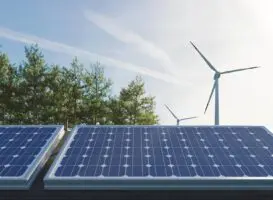The Victorian government has taken a pot-shot at the state’s energy efficiency scheme, drawing an immediate rebuke from the energy efficiency industry and raising new fears that government decisions will be motivated to defend the interests of brown coal generators.
In what appears to be a selective leaking of the most negative aspects of a state government report into the Victoria Energy Efficiency Target (VEET), the Herald Sun reported that it was expensive to consumers, and had achieved much less abatement than planned.
Both assertions were rejected by the industry as a gross exagerration, and noted that none of the benefits of the VEET scheme had been cited.
It is a tactic (selective releases to an obliging Murdoch media) that has been used by Victoria’s conservative counterparts in Queensland and NSW in pushing back against the renewable energy target and solar incentives, or both.
It seems that all three states are now configuring policy to protect the incumbent generators – who have most to lose from the decline in household demand which has accelerated rapidly in recent years thanks to energy efficiency schemes and the uptake of rooftop solar.
Average households consumption has fallen more than 10 per cent in some areas in just the last year, and this is having a huge impact on the profit levels of brown coal generators in Victoria, black coal generators in NSW and Queensland, and gas-fired generators everywhere.
Energy efficiency experts said the leak to the Herald Sun was surprising, given that the government has been sitting on the report for several months – and could have released it in its entirety.
The Energy Efficiency Council said the delays and leaks had left a “mess” – with thousands of jobs at risk – for incoming minister Russell Northe, the member for Morwell, the scene of the damaging fire and the home of the brown coal industry.
Rob Murray-Leach, the CEO of the council, says energy efficiency measures were about reducing bills for customers.
“So far, the program has helped over 1.3 million Victorian homes and businesses save energy and reduce their bills. Only an idiot would want to cut it back,” he said in a statement.
“The Napthine Government has failed to release its overdue review of the VEET, and instead misleading data was leaked to a journalist. This is outrageous and irresponsible behaviour that threatens thousands of jobs around the State.”
He said the VEET was introduced by the ALP in 2008 to help homes and businesses save energy. In 2011 the Coalition doubled the size of the program to help more homes and businesses. In 2013 the Government started the review that is required by legislation, but they’ve been sitting on the report for months and it’s still not public.
The “cherry picked” statements included a claim that the program was costing households more than $60 a year.
Murray-Leach said work by the Australian Energy Market Commission confirmed that the costs of the VEET were equivalent to less than 1 per cent of energy bills (under $12 a year) in 2013-14.
“What’s more, the benefits of the scheme would significantly outweigh these costs, with a national modelling exercise in 2013 finding that a national scheme like VEET would deliver $2.2 billion in economic benefits.”
His comments were echoed by others in the industry, who also questioned why the full report had not been released.
Ric Brazzale, board member of the Energy Efficiency Certificate Creators Association, noted that the claim around abatement appeared to be either an error at the newspaper, or a misunderstanding that the abatement period is 10 years, not just the 5 year period of the VEET.
He echosed, Murray-Leach’s points about the costs, noting that the AEMC said the average residential consumption in Victoria is 4.7 MWh per annum, so the cost of the scheme is $12 per annum.
“To get a claimed cost figure of more than $60 per annum in 2017 requires some bizarre assumptions on the cost of abatement and its availability,” he wrote in an emailed statement.
“Any consideration of cost of the scheme needs to also include the reduction in wholesale prices delivered as a result of lower demand. This means that higher cost generators do not need to be dispatched. This becomes a more critical issue over time with rising gas prices.”
He said Victoria’s share of the $2.2 billion identified in a national energy savings scheme would be nearly $ 500 million.
“The Victorian government’s modelling would need to include some really bizarre assumptions to arrive at the VEET scheme showing negative benefits as implied in the article.”








